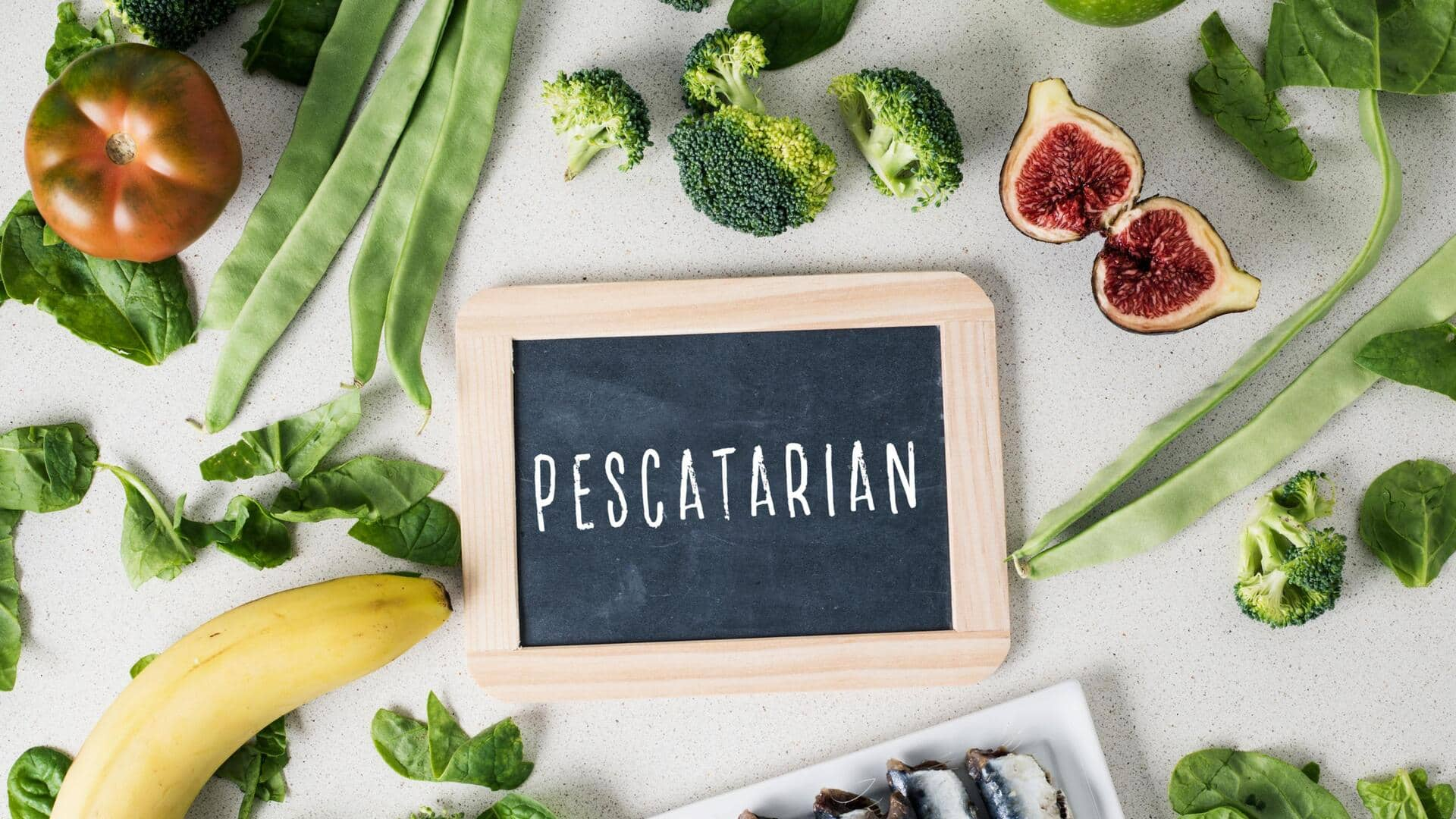
Pescatarian v/s vegetarian diet: What sets them apart
What's the story
When it comes to food choices, people have many options today, catering to their personal tastes, ethical beliefs, and health goals. Two popular diets that often come up in discussions are the pescatarian and vegetarian diets. These diets both focus on plant-based dishes, but they have their unique reasons for being followed. Here we will explore the factors that set them apart.
Dnksnk
Defining the diets
The main difference between pescatarians and vegetarians is their approach to animal products. Vegetarians avoid all types of meat, including fish and seafood, but they may include animal-derived items like milk, dairy, eggs, and honey in their diet. On the other hand, pescatarians sometimes include fish and seafood in their predominantly plant-based diet, typically a few times a week.
Omega-3
Health benefits of each diet
Plant-based diets, whether vegetarian or pescatarian, provide several health benefits when balanced properly. These include lower cholesterol, reduced inflammation, improved blood pressure, enhanced heart health, reduced cancer risk, and improved brain function. Notably, the pescatarian diet offers a natural source of heart-healthy omega-3 fatty acids through seafood consumption, whereas vegetarians who avoid fish might need supplements to ensure adequate intake.
Risk
Risks associated
The difference between vegetarian and pescatarian diets also involves certain risks. Pescatarians should be mindful of consuming too much fish because of the potential for mercury poisoning. To reduce this risk, they can choose fish with lower mercury levels and avoid eating fish every day. On the other hand, vegetarians don't face this particular risk since they entirely avoid fish.
Cost
Pocket-friendliness
In terms of cost, pescatarian diets can be more expensive due to the inclusion of seafood, which tends to be pricier than other protein sources. However, by choosing sustainably caught or farmed fish, pescatarians can manage expenses. On the other hand, vegetarian diets are typically more budget-friendly and accessible as they mainly consist of plant-based foods, which are generally affordable and widely available.
B-12
Nutrition
Both should be mindful of their B12 vitamin intake, as it is primarily found in animal-based foods. Pescatarians have an advantage in this regard because they can obtain B12 from fish, such as tuna, and also incorporate eggs and dairy for additional B12. In contrast, vegetarians depend only on dairy as their main B12 source and may need to consider supplements to prevent deficiency.
Conclusion
The bottom line
In conclusion, the choice between a pescatarian and vegetarian diet ultimately depends on individual preferences, ethical beliefs, and health goals. Both diets can be incredibly healthy when well-balanced, emphasizing whole foods and nutrients like B12. Ultimately, the decision should align with personal values and dietary needs, with both options offering a pathway to a nutritious and environmentally conscious lifestyle.